“Small positive acts, when multiplied by millions of people, can transform the world.”
Anon
A sustainable lifestyle certainly is possible for those who have chosen apartment living and also for adventurous families who reside and travel between countries and cultures. Those whose life is full of unpredictable variables, in countries where sustainable awareness is still evolving, need to be kind to themselves and remember they can still stand by their values even when having to allow flexibility within their commitment.
Inspired to coincide with Plastic Free July, this post is full of constructive and actionable sustainable lifestyle suggestions. The intention is to encourage small and positive eco-friendly changes, with a strong focus on how to reduce unnecessary waste.
The format has been kept simple with highlighted links to posts which are written in more detail.
Step One – Find YOUR WHY for making Sustainable Lifestyle Choices
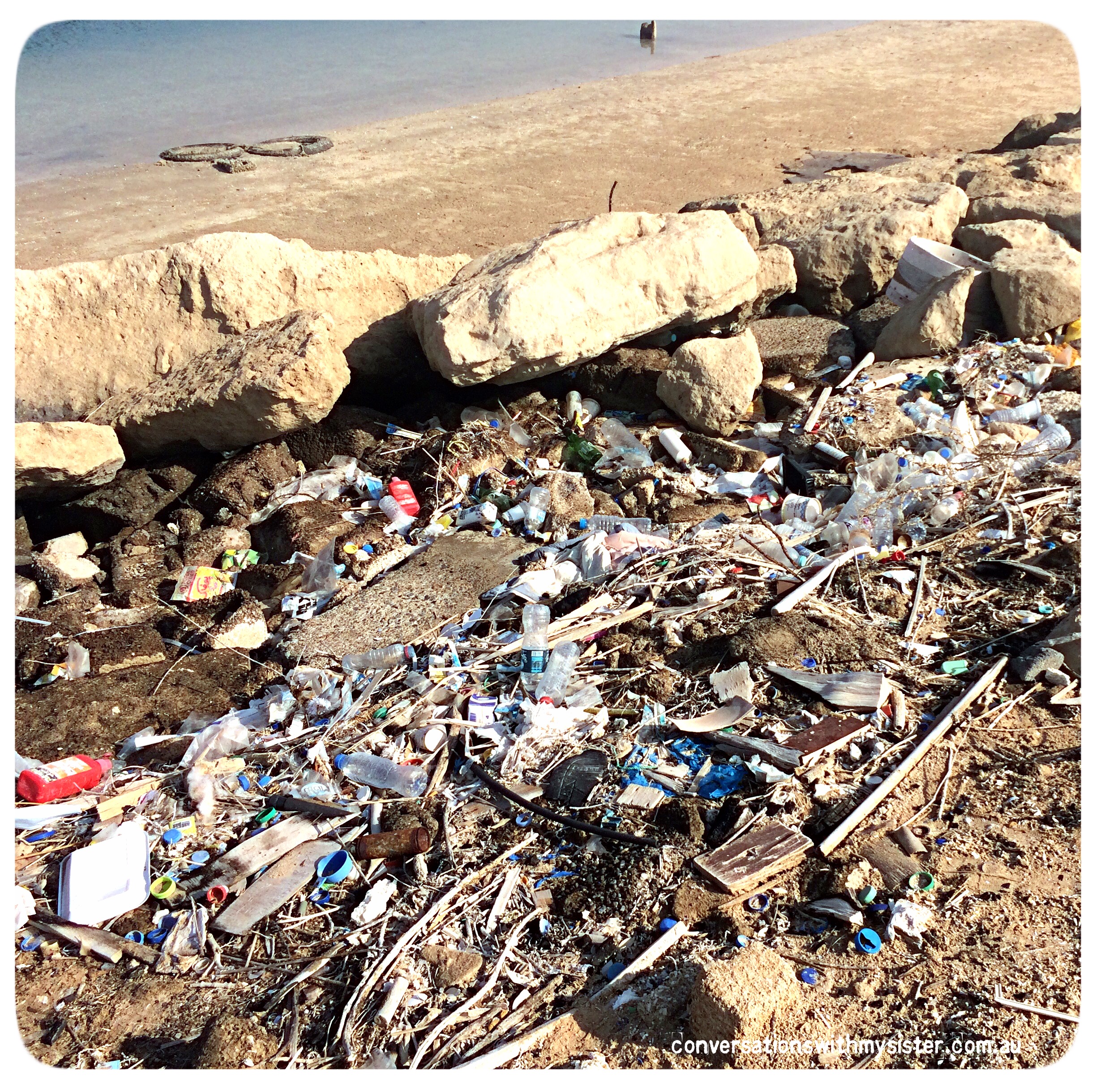
Many are suffering the consequences which stem from this age of ‘single-use’ convenience. Our dependance on disposable living has come at the cost of our beautiful planet and all who call it home. While the knowledge of how our oceans are suffocating with plastics is widely spread, there are other areas which also need our recognition and attention.
Related Post: I’m Talking Rubbish – An Introduction to the Situation of Plastic Pollution
The current list of animals who have been found to have digested plastic live in isolated areas such as our deserts and extend to those who rely on the sea and its surrounds for survival. Underdeveloped countries, with heartbreaking pockets of poverty, account for millions of people whose current home and work environment are surrounded by mountains of rubbish. Now is the time for us to establish new sustainable lifestyle habits…
Step Two – Be realistic with your Sustainable Lifestyle Expectations
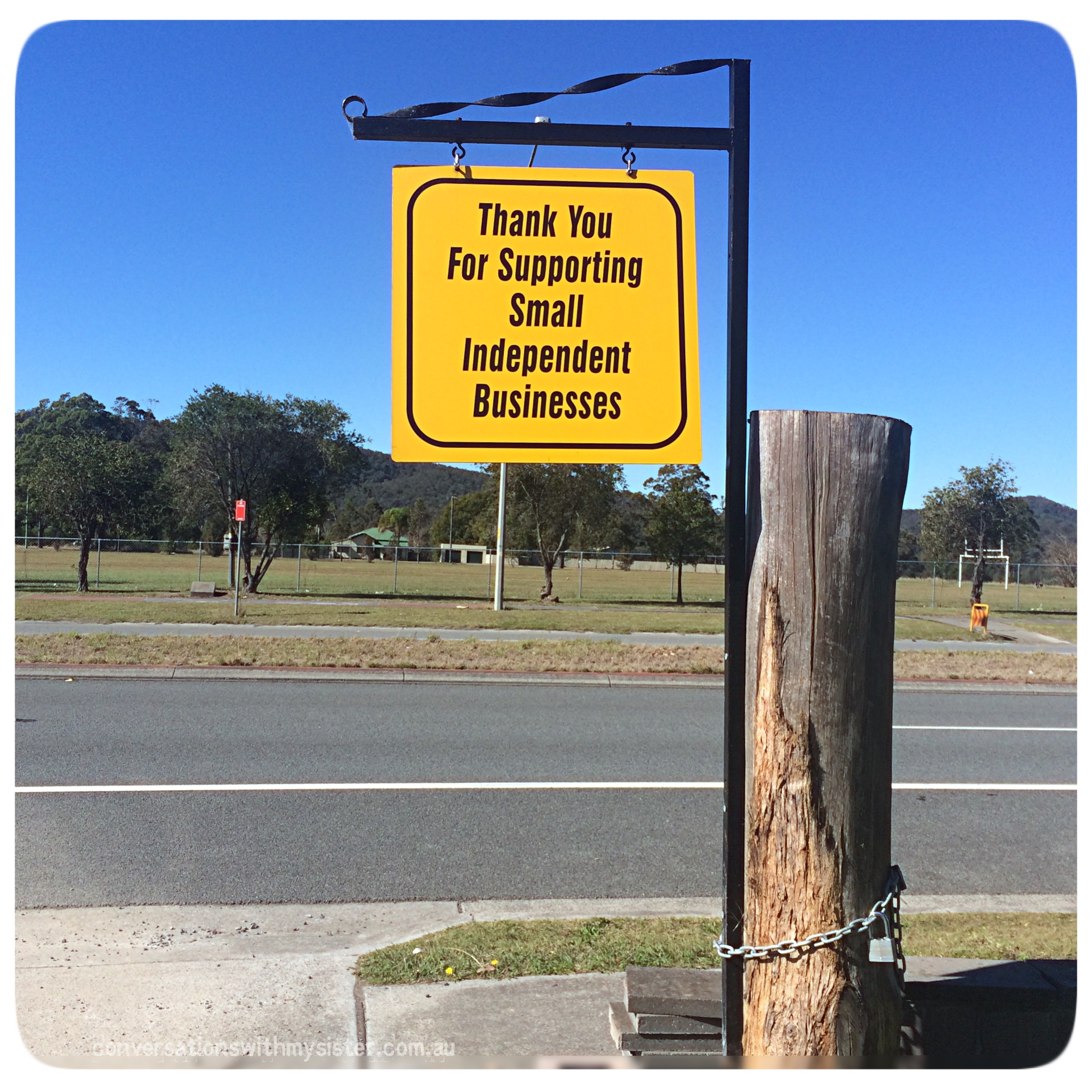
The reality is some countries have sustainability structures which are further advanced than others.
Establishing a sustainable lifestyle and minimising your footprint is definitely easier in the lands where chickens are happily cackling in backyards, competing with compost bins for the food scraps of the day; where weekly farmers markets aren’t too far down the road, making it easy to top up on items not plentiful in your own vegetable garden; efficient and reliable waste removal services are provided by the local council every week and there is a national awareness and support for fair trade, ethical and green practices. You would ideally come across business stocked with local ingredients, bulk choices to keep even the fussiest pantry happy and have convenient access to a variety of practical and eco-friendly household items.
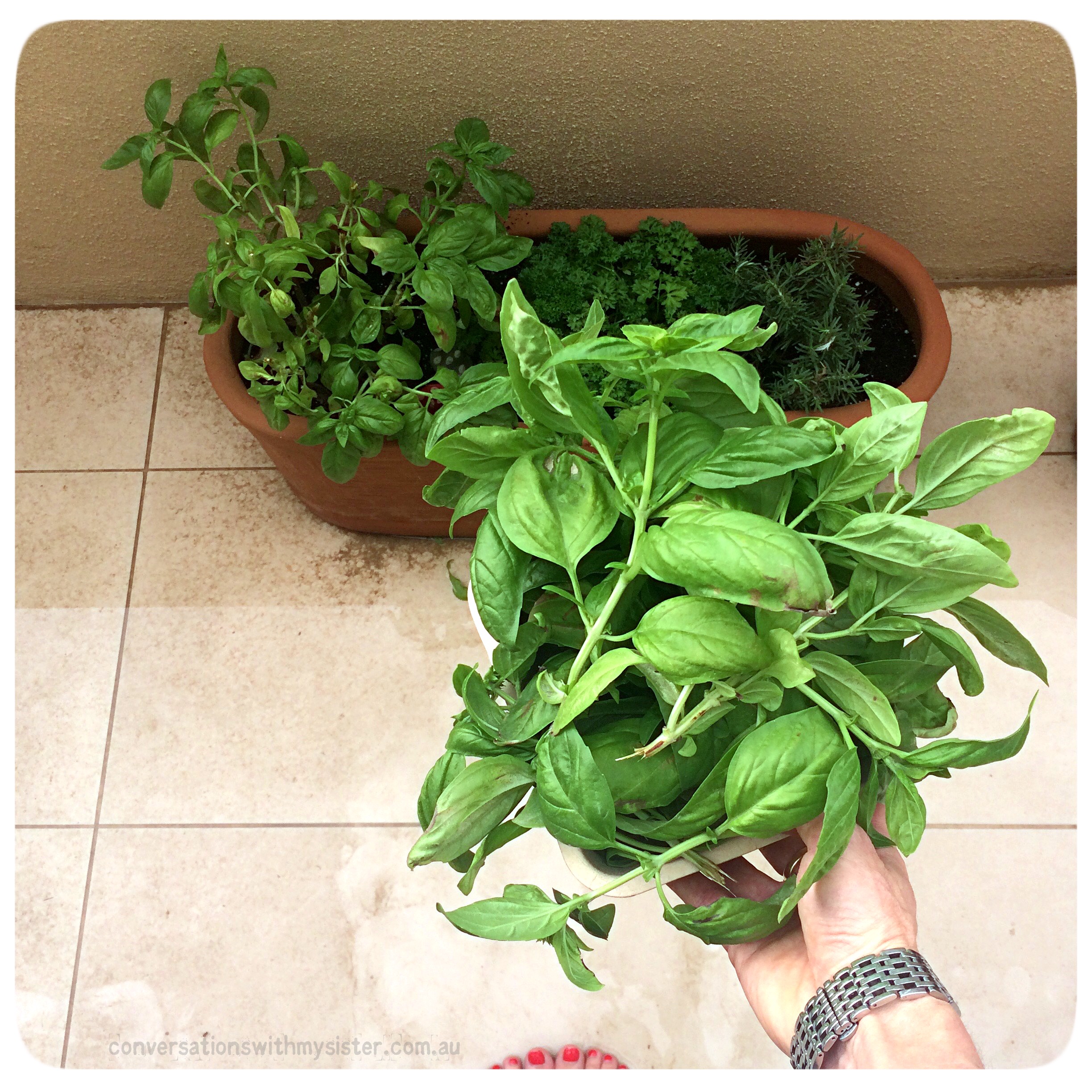
Those who find themselves removed from these everyday luxuries must think creatively and keep an open mind. With a bit of patience and encouragement, you will be pleasantly surprised at the number of opportunities available to establish positive everyday habits.
Step Three – Get Organised with your Sustainable Lifestyle Routine:
{ Here is where our tried and tested suggestions come in }
START WITH THE BIG FOUR – As recommended by PLASTIC FREE JULY
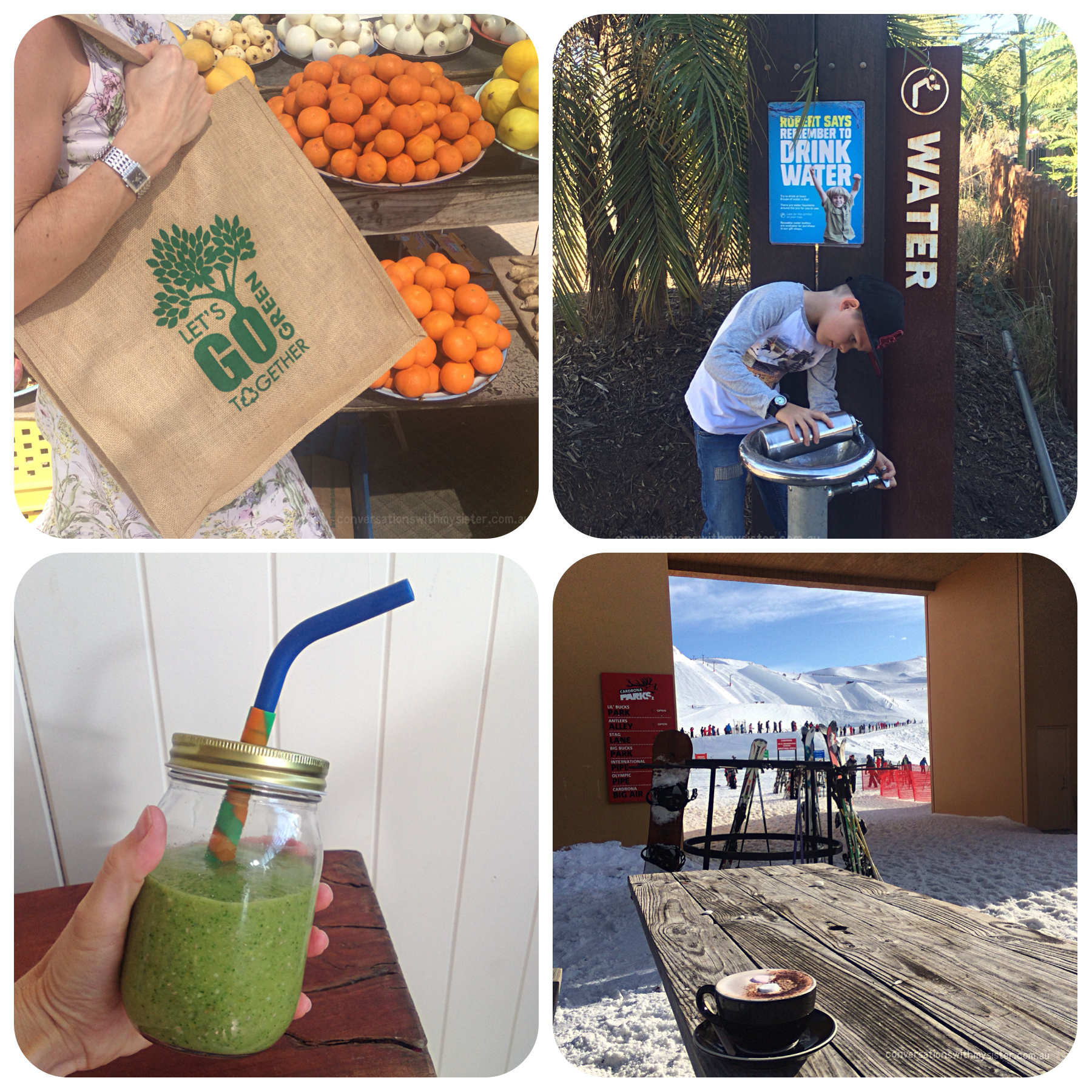
As seen in my suggested Starters Kit:
✔️ Bring your own (BYO) reusable shopping bag – my most favourite here
✔️ Pack a reusable/refillable drink bottle – most reliable, leak proof, insulated ones here
✔️ Refuse a single-use straw or BYO
✔️ BYO coffee mug, refuse a lid on the disposable cups or take the time to ‘dine’ in
GRADUALLY INCORPORATE CONSCIOUS GROCERY AND SHOPPING CHOICES
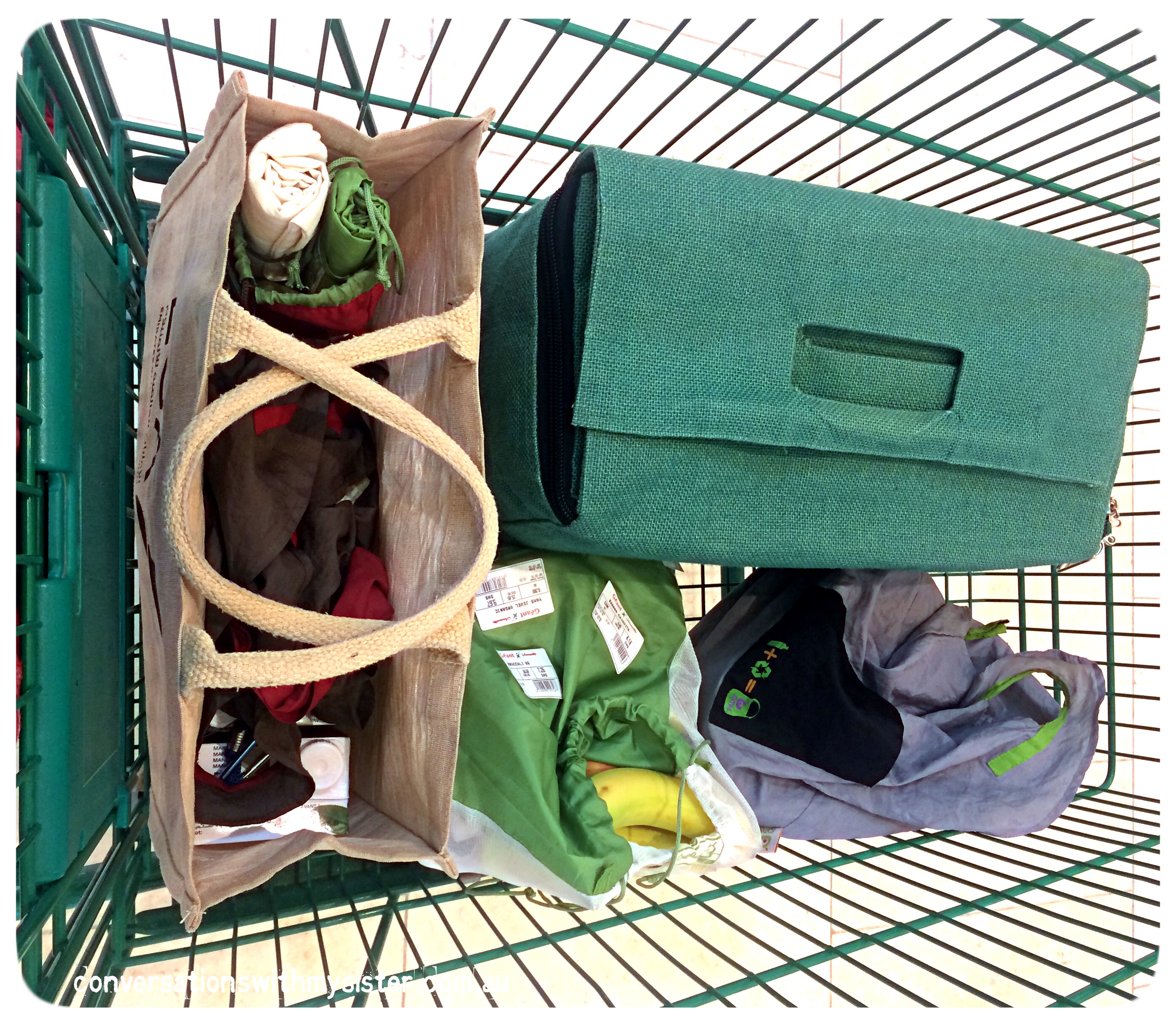
✔️ Establish a Refuse, Reduce, Reuse, Recycle and Rot mindset
✔️ Look for fair trade and ethical certifications and support companies who value all workers in their supply chain
✔️ Shop local and support small business – CWMS is building up a database here
✔️ Buy local and seasonal produce – local Farmers Markets are the perfect place to start
✔️ BYO reusable shopping, grocery + produce bags or ask for cardboard boxes – DIY idea here
✔️ Choose individual fruit and veg rather than reaching for pre-packaged
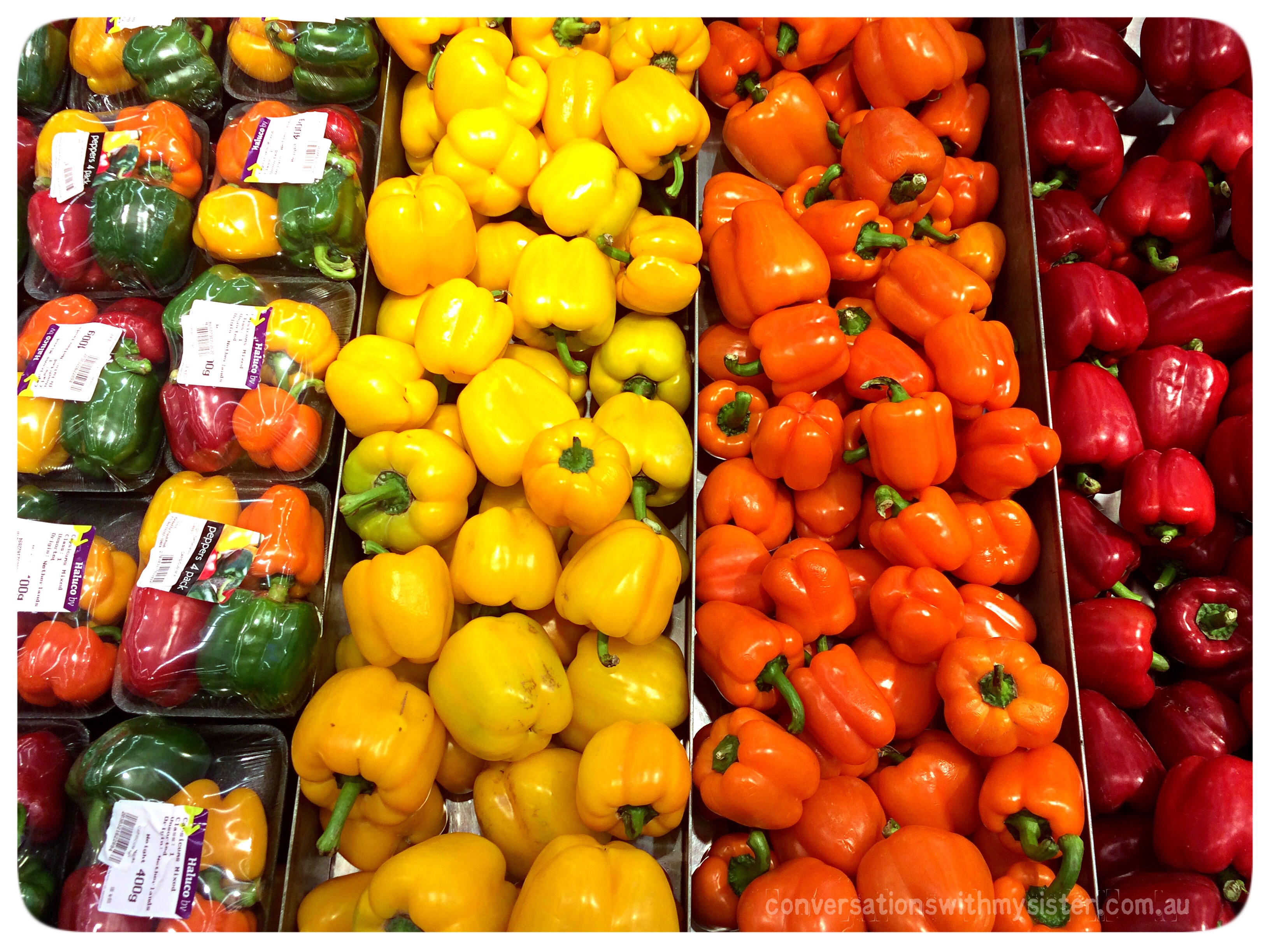 ✔️ Stick the ‘weighing’ stickers on the produce itself or worst case, dedicate one bag for all the stickers – example here
✔️ Stick the ‘weighing’ stickers on the produce itself or worst case, dedicate one bag for all the stickers – example here
✔️ Buy items which have been Forest Stewardship Council (FSC) Approved e.g. books, tissues, toilet paper and paper towels
✔️ Replace paper towel, napkins and tissues with reusable cotton fabrics
✔️ Select items wrapped in paper, cardboard, aluminium or are sold ‘nude’
✔️ Take the time to look for plastic free alternatives – my latest switch is to paper stemmed cotton tips (buds) found on the shelf of our local supermarket
✔️ Buy large packets as opposed to single items which can be separated into smaller reusable containers e.g. yoghurt, juice, crisps/chips etc. Especially effective when it comes to organising daily lunch boxes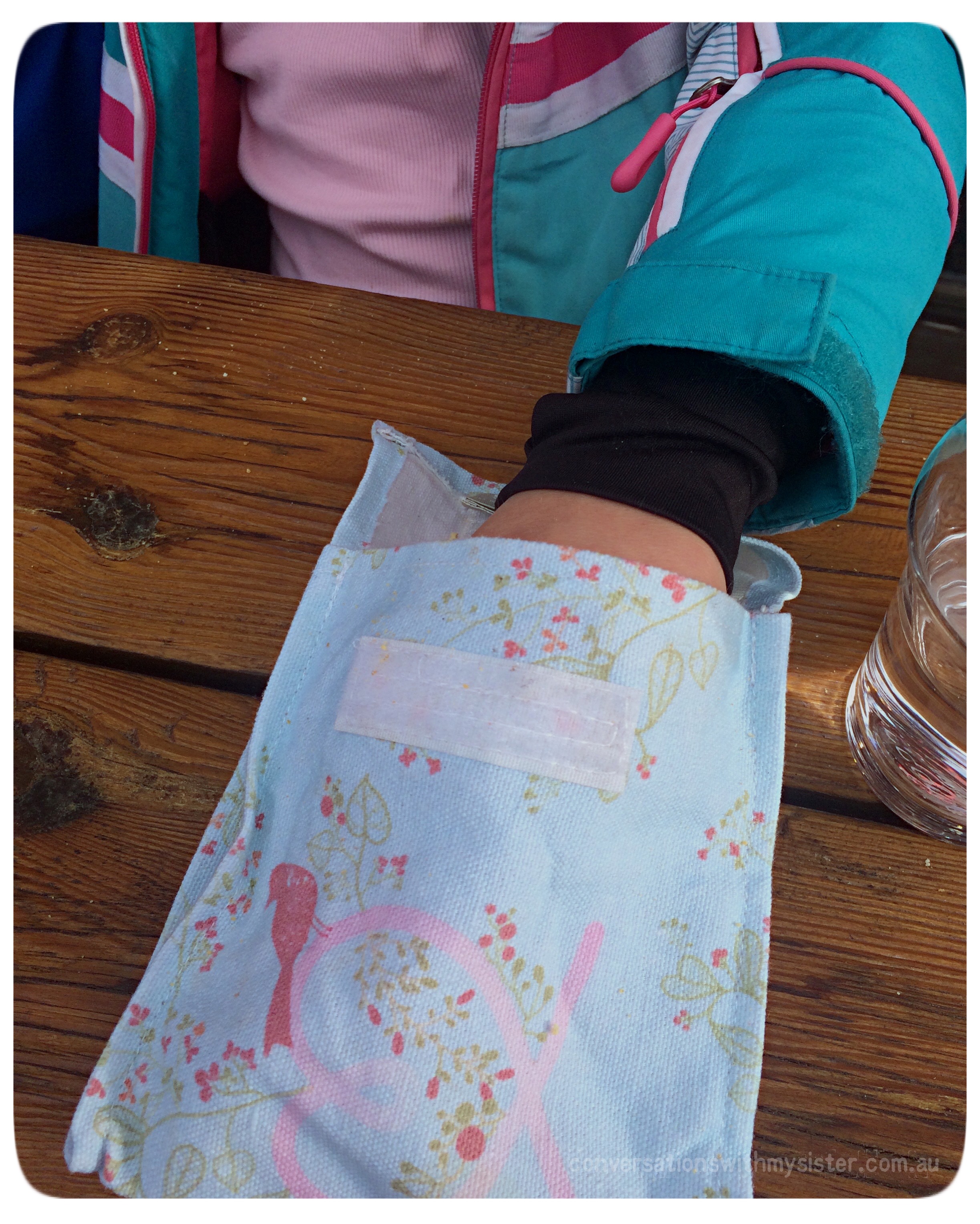 ✔️ Choose to buy from bulk counters and take your own containers, jars and bags. Brown paper bags are also a good option
✔️ Choose to buy from bulk counters and take your own containers, jars and bags. Brown paper bags are also a good option
✔️ Go natural with cosmetics paying special attention to avoiding brands which use microplastics. These tiny pieces of plastic are so small they pass through filters and end up in our oceans or, make your own
✔️ Stick to fabrics made from natural fibres – synthetic fibres shed and enter waterways with each wash
✔️ Select organic cotton for Female Personal Hygiene or Zero Waste alternatives:
- Eco Warrior Princess reviewed the Ruby Cup
- Sustainability in Style reviewed the Diva Cup
- The Green Hub reviewed Modibodi Period Undies
✔️ Invest in rechargeable batteries
✔️ Choosing gifts – consider experiences over stuff
INTRODUCE NEW HABITS AROUND THE HOUSE
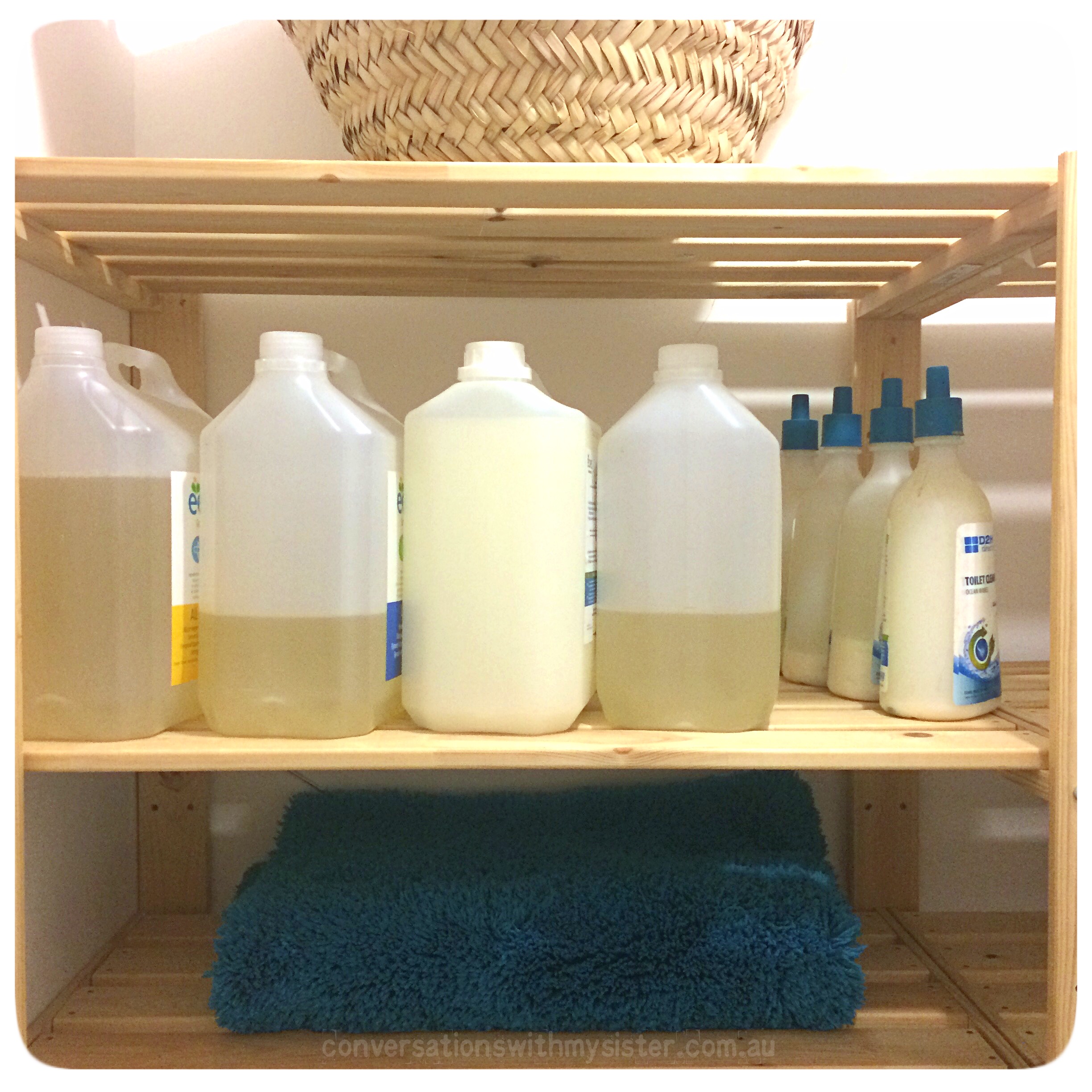
✔️ Buy bulk eco friendly detergents, liquid soaps (or better still buy a bar of soap) and cleaning items which you can then transfer into more manageable containers or, make your own
✔️ Eat less meat #meatfreemonday
✔️ Compost your scraps – yes you can in an apartment. Bokashi Compost Review by Eco Warrior Princess here
✔️ Decorate with indoor air purifying plants
✔️ Use organic pest control for pot plants and gardens
✔️ Send off your dry cleaning in a reusable suit bag
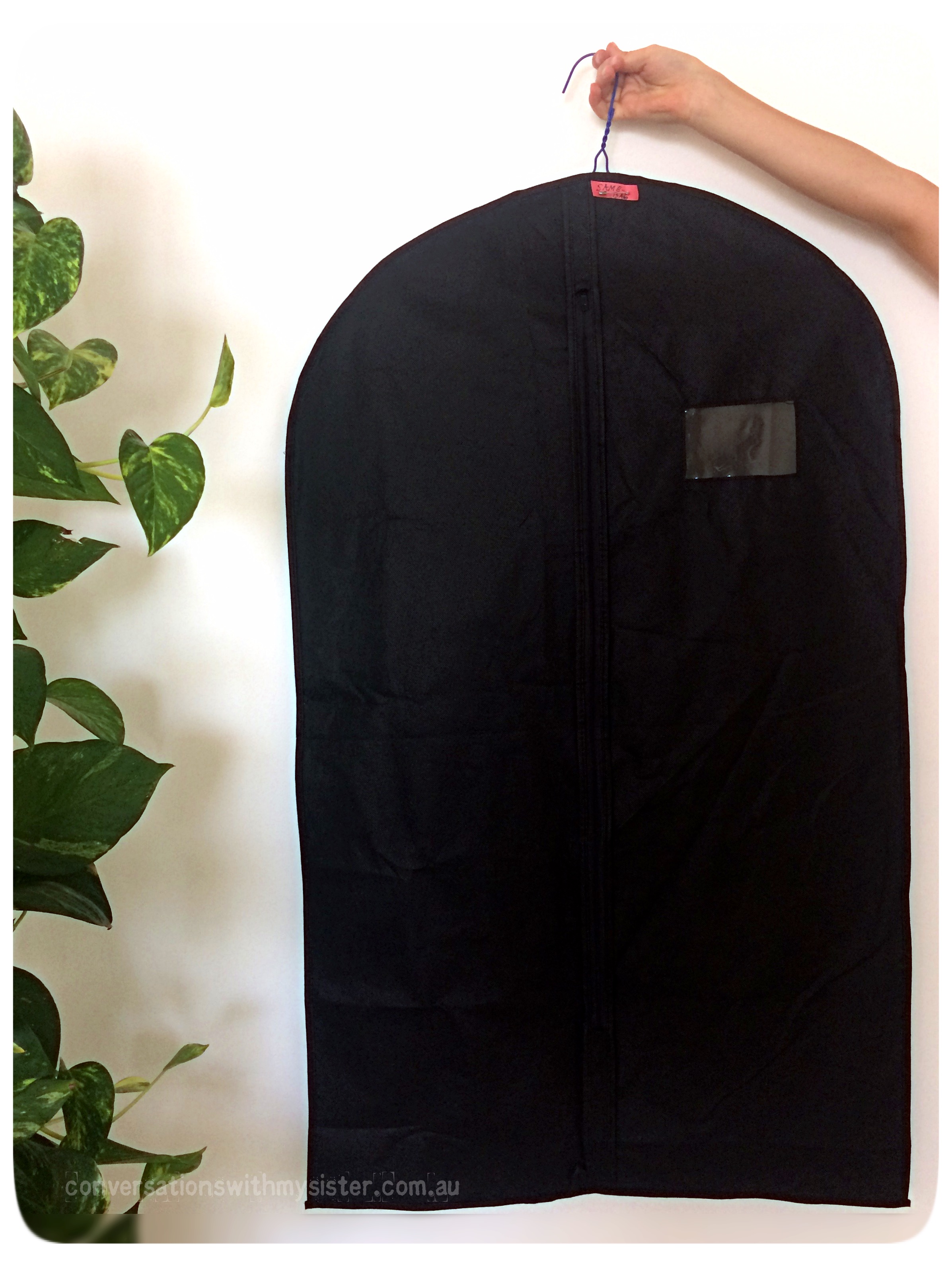
✔️ Consider second hand before new for homewares and wardrobe updates – online marketplaces or local Facebook pages are a perfect place to start
✔️ Dispose of contact lenses in the bin – all drains lead to the ocean
✔️ Go paperless, utilise online alternatives
✔️ Declutter and minimise storage options to reduce the temptation to ‘hoard’ items not in regular use
✔️ Choose well, buy items you absolutely love or really need and make them last – the start of our Less is More lifestyle here
✔️ Choose real materials such as wood e.g. brushes, mop and broom handles, dish brushes, bathroom accessories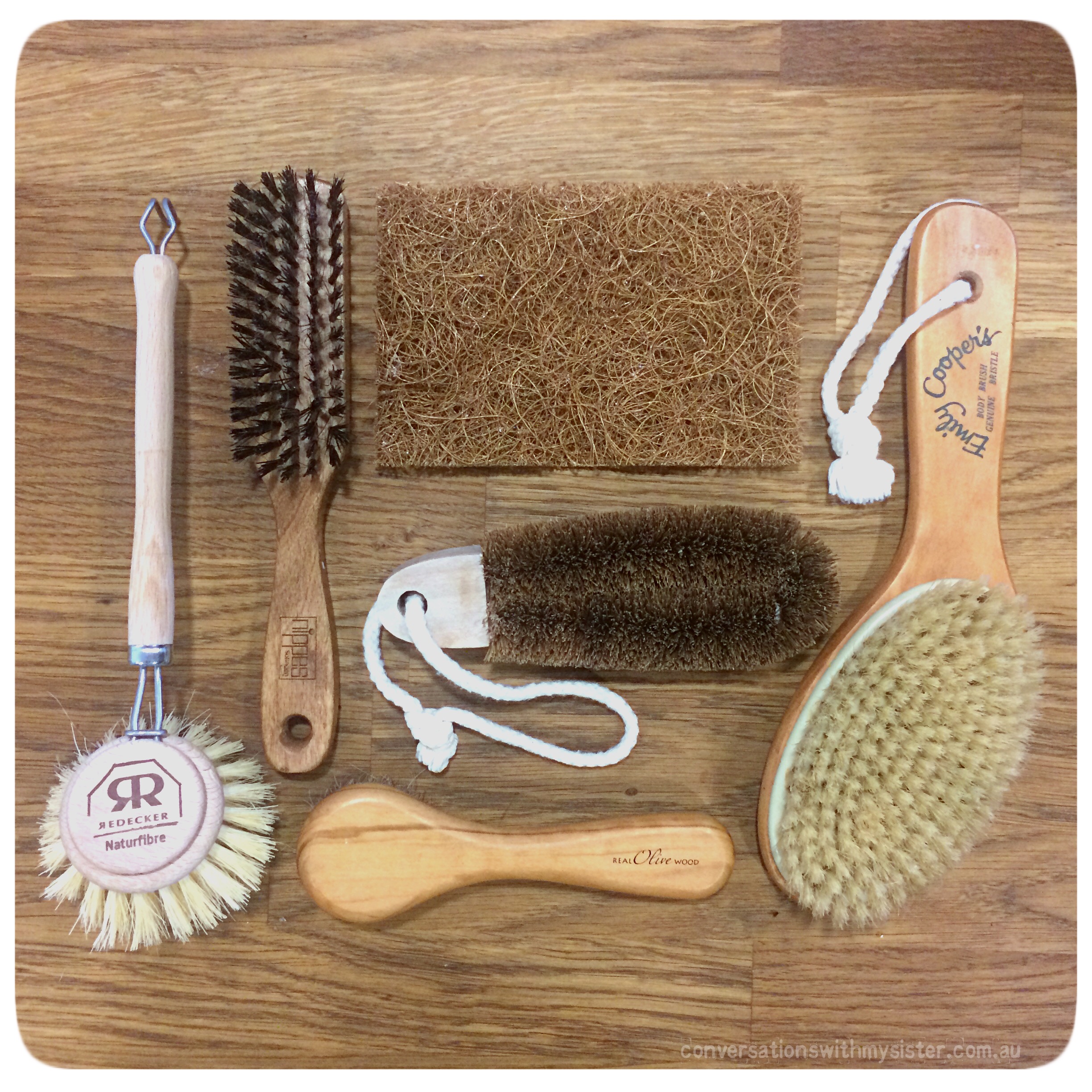 ✔️ Downsize your waste bin to keep a check on your amount of household rubbish and eliminate the need to buy larger plastic bin bags
✔️ Downsize your waste bin to keep a check on your amount of household rubbish and eliminate the need to buy larger plastic bin bags
✔️ Look after things and invest in a good quality glue for repairs
✔️ ‘Donate don’t dump’ items which you no longer need – idea for where to donate prescription glasses here
✔️ Save boxes from packaging and donate to your local school for projects, or use as a weed mat in your garden
✔️ Grow your own – plant a veggie garden, decorate your balcony with ‘edible’ pot plants and grow herbs indoors – inspiration from My Green Chapter here.
✔️ Become familiar with local recycling capabilities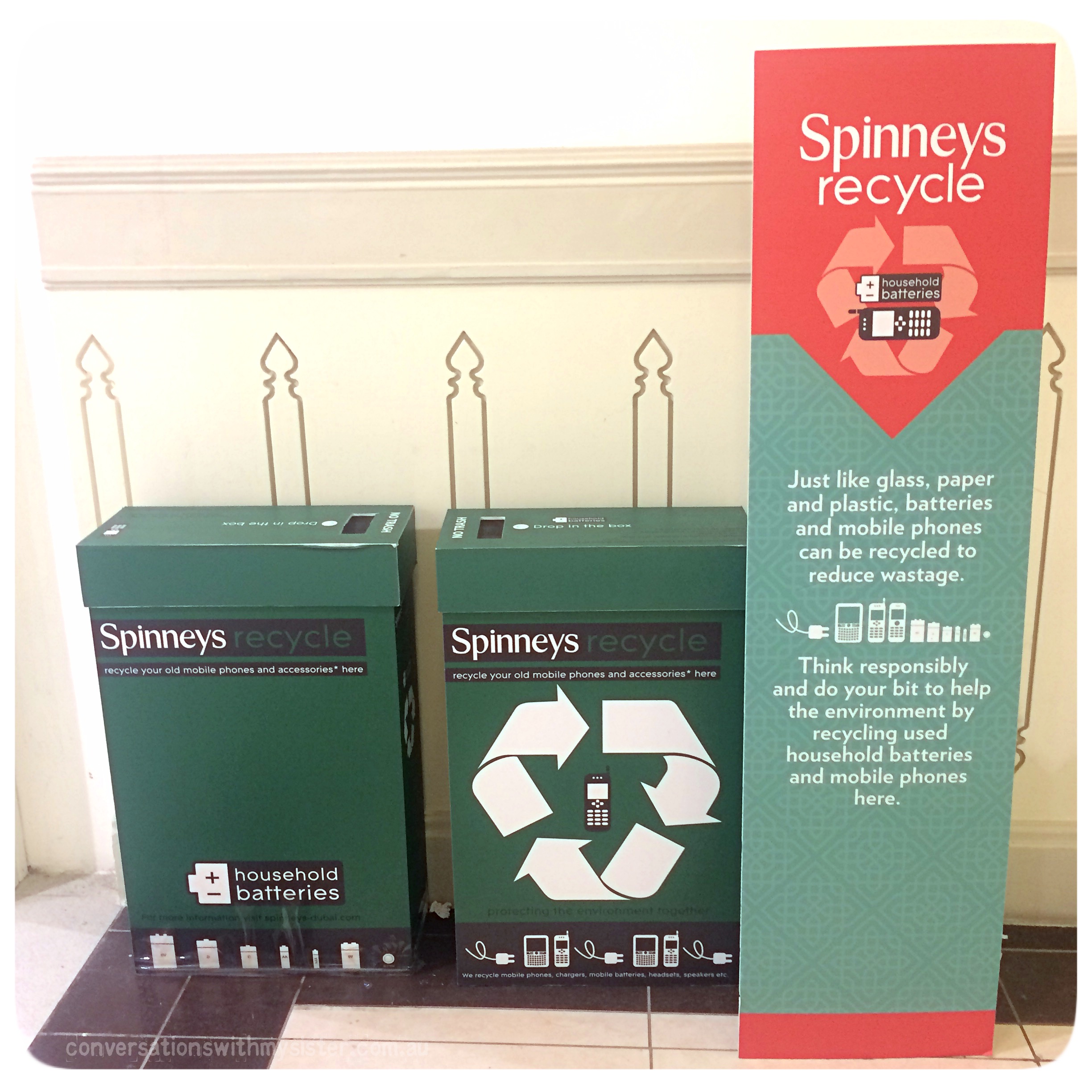 ✔️ Choose energy efficient appliances
✔️ Choose energy efficient appliances
✔️ Install LED light bulbs
✔️ Use energy wisely e.g. full load of washing for clothes and dishwashers and hang your clothes in the sun (if possible) to dry
✔️ Ask yourself “Does this item of clothing really need washing after each wear?” and prolong the life of your clothes and energy usage – Good On You App explains here
✔️ Switch off your lights when not in use
✔️ Set your air-conditioning to 24 – 25 degrees for summer and 17-19 degrees in Winter
✔️ Use curtains and blinds efficiently to keep out the heat in summer and to retain it during winter months
ESTABLISH NEW ROUTINES IN THE KITCHEN
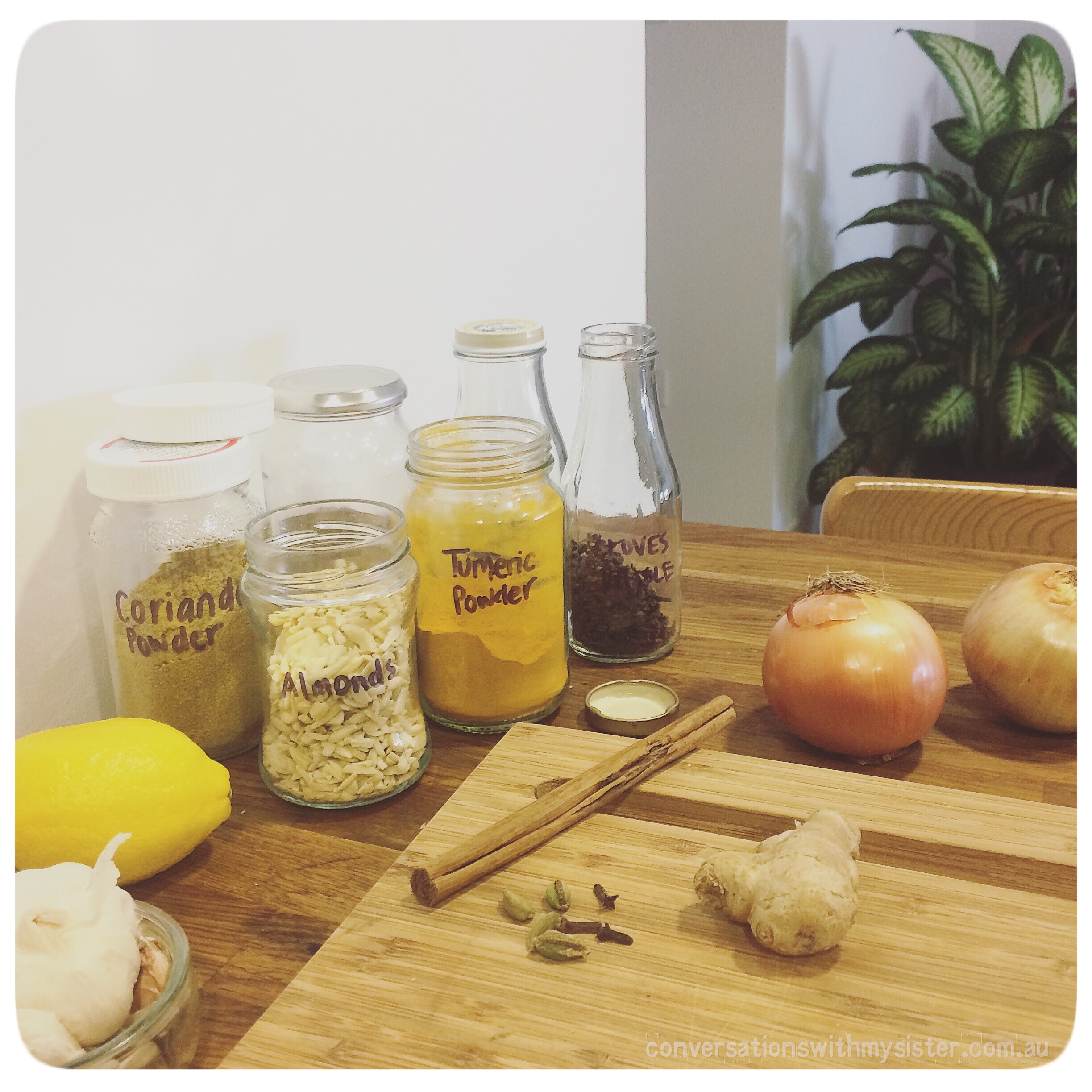
✔️ Save jars to reuse as food storage – example here
✔️ Tap water not safe to drink? Invest in a water filter or buy the largest size water bottle available and transfer into reusables at home
✔️ Replace cling film/glad wrap with beeswax wraps
✔️ Choose natural materials such as wood (utensils) or glass (storage)
✔️ Do your research and choose saucepans with eco-friendly coatings
✔️ Consider second hand – e.g. our dinner set is Wedgwood bought for £50 from an English thrift shop
✔️ Support companies who make conscious choices e.g. Jaime Oliver has a line of recycled glassware which is fab
✔️ Choose appliance which are multi-use – Less is More
✔️ Prepare home cooked meals using real and wholesome ingredients – Click here to visit Well Nourished.
✔️ Invest in a good smoothie/juice appliance – perfect way to use over-ripe produce
✔️ Prepare extra meals and cook in bulk so you can pack your own lunch
BE CONSISTENT AND CONTINUE THESE CHANGES WHEN OUT AND ABOUT + TRAVELLING
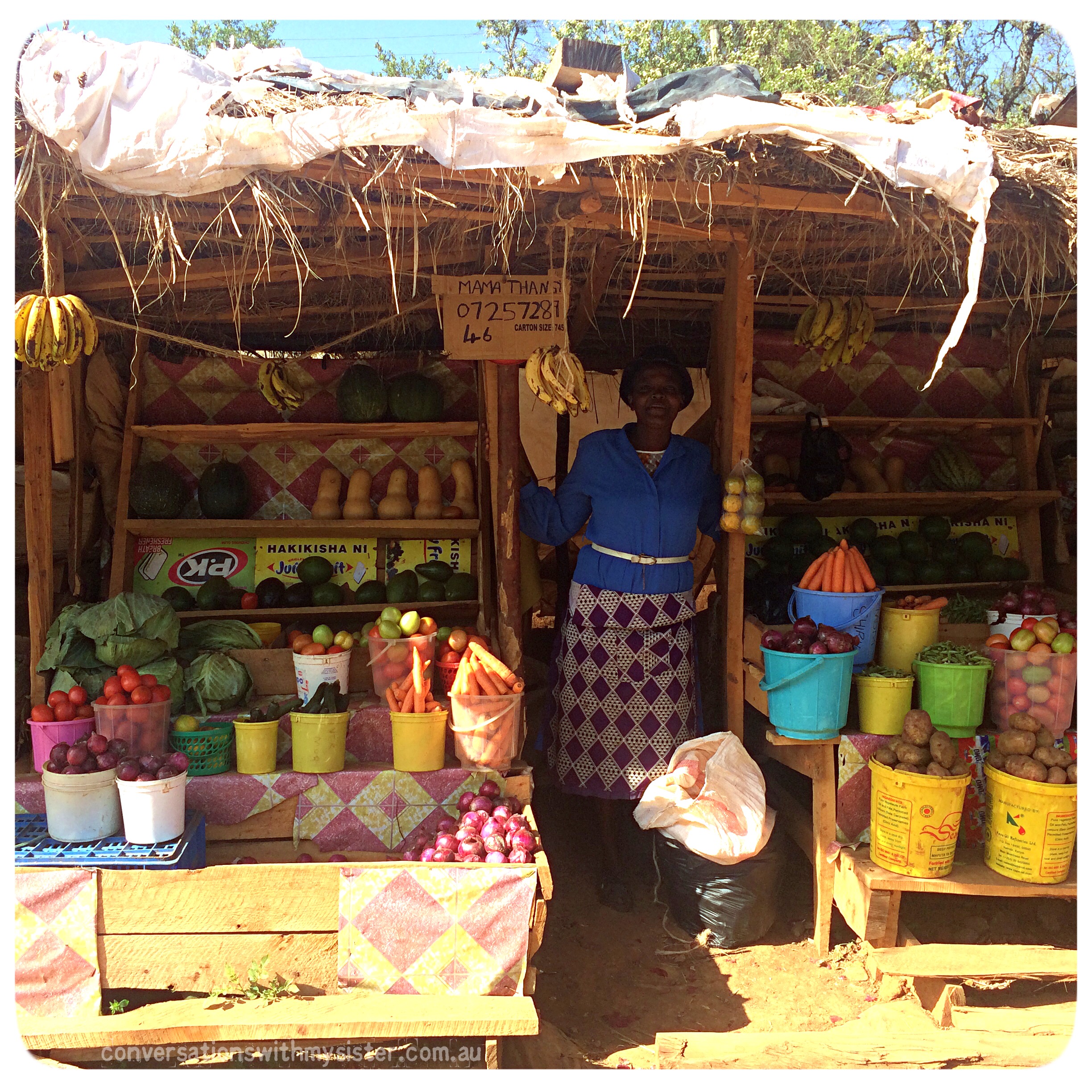
Must Read: Sustainable and Convenient Travel Tips and our ever growing Travel Guides
✔️ Respect local cultures and customs
✔️ Establish a Take3 for the Sea habit and organise a Community Beach Clean
✔️ Carry a reusable shopping bag
✔️ Pack lunch boxes, drink bottles and reusables snack containers for meals on the go – see our favourites here
✔️ Choose local and seasonal produce
✔️ Pack and use your own toiletries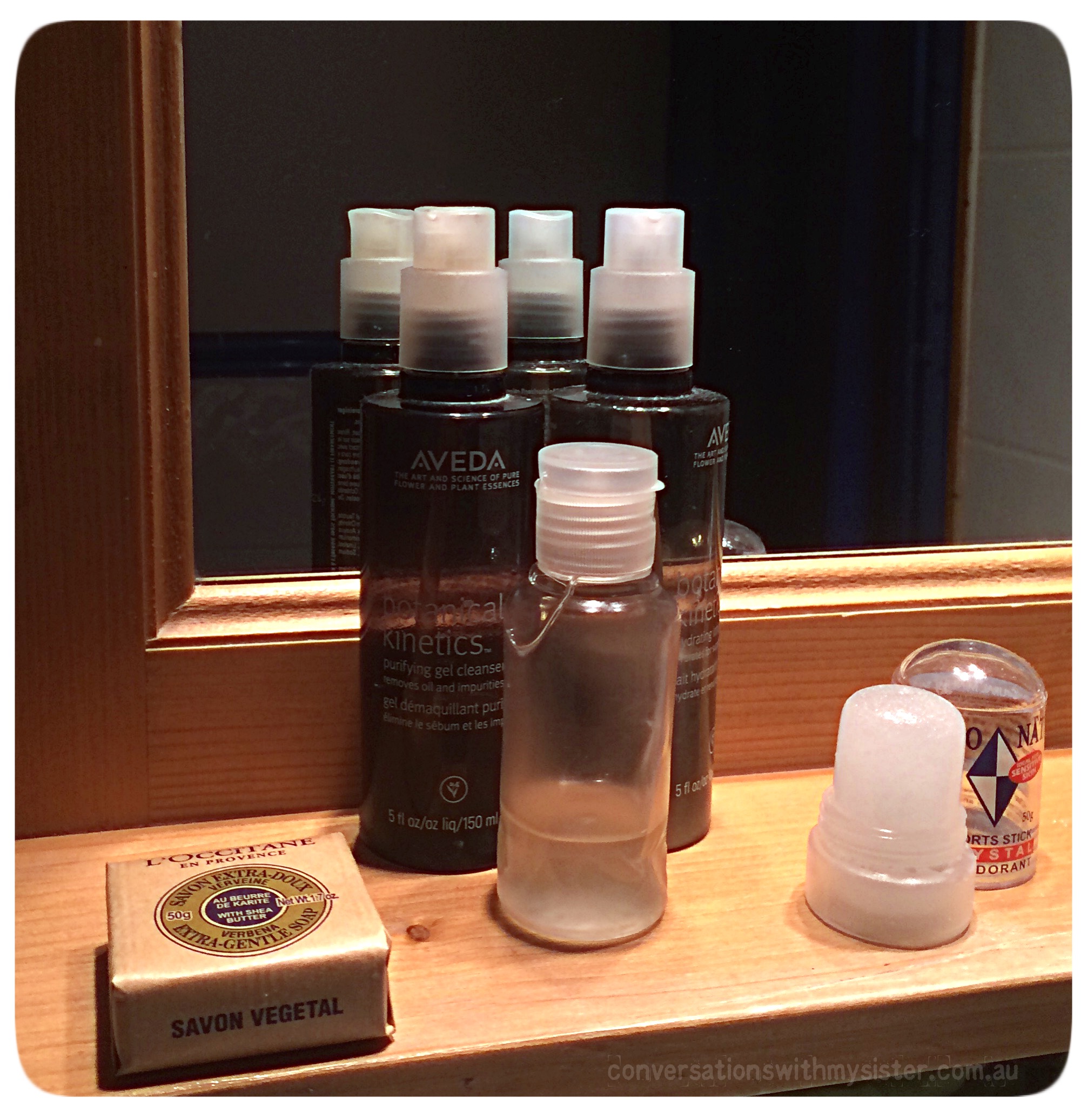 ✔️ Support local artisans
✔️ Support local artisans
✔️ Enlist a local guide
✔️ Stay in eco friendly, locally owned establishments
✔️ Ride in public trasport
✔️ Choose pushbike tours
✔️ Pack lightly
My last suggestion for those who are living in a sustainably challenged environment and are looking for support within their home Community is to seek out or begin a local Facebook Group. I am a member of one in Abu Dhabi and find the shared information and updates of stores supportive of the Plastic Free/Zero Waste Lifestyle invaluable when it comes to overcoming challenges and frustrations. Since moving to the Middle East I certainly have come to appreciate how being part of a like-minded community can’t be underestimated.
A Sustainable Lifestyle comes in many different shapes and forms and needs to be tailored to suit individual limitations. This is by no means an exhausted list, just some ideas to get you underway.
Overwhelmed?
Don’t be!
Let’s start small. Choose three new habits to commit to for this month and we can build on the rest as we go.
Which three will you begin with?
Those who have been on their journey for a while, please share if you have some ideas to add? Perhaps you have found yourself in unexpected situations and have positive solutions?
Pin For Later
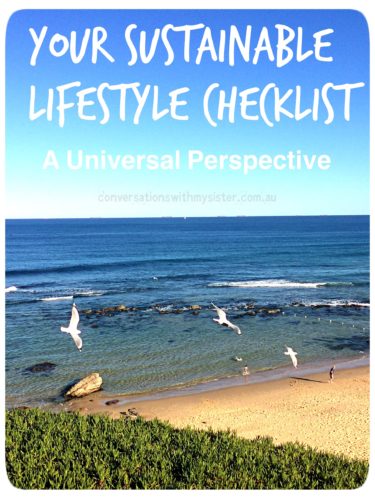
Join the conversation:
Comment Section || Instagram || Facebook || Pinterest ||
Looking forward to hearing from you,
X Shea
Disclosure: Included in this article are links to both individual product companies as well as our preferred Eco Store where you can conveniently shop from one or more brands at the one time. This post is 100% unsponsored and all reviews and opinions are that of my own. It does, however, contain affiliated links which, when clicked, provide CWMS with a small commission at no extra expense to you.

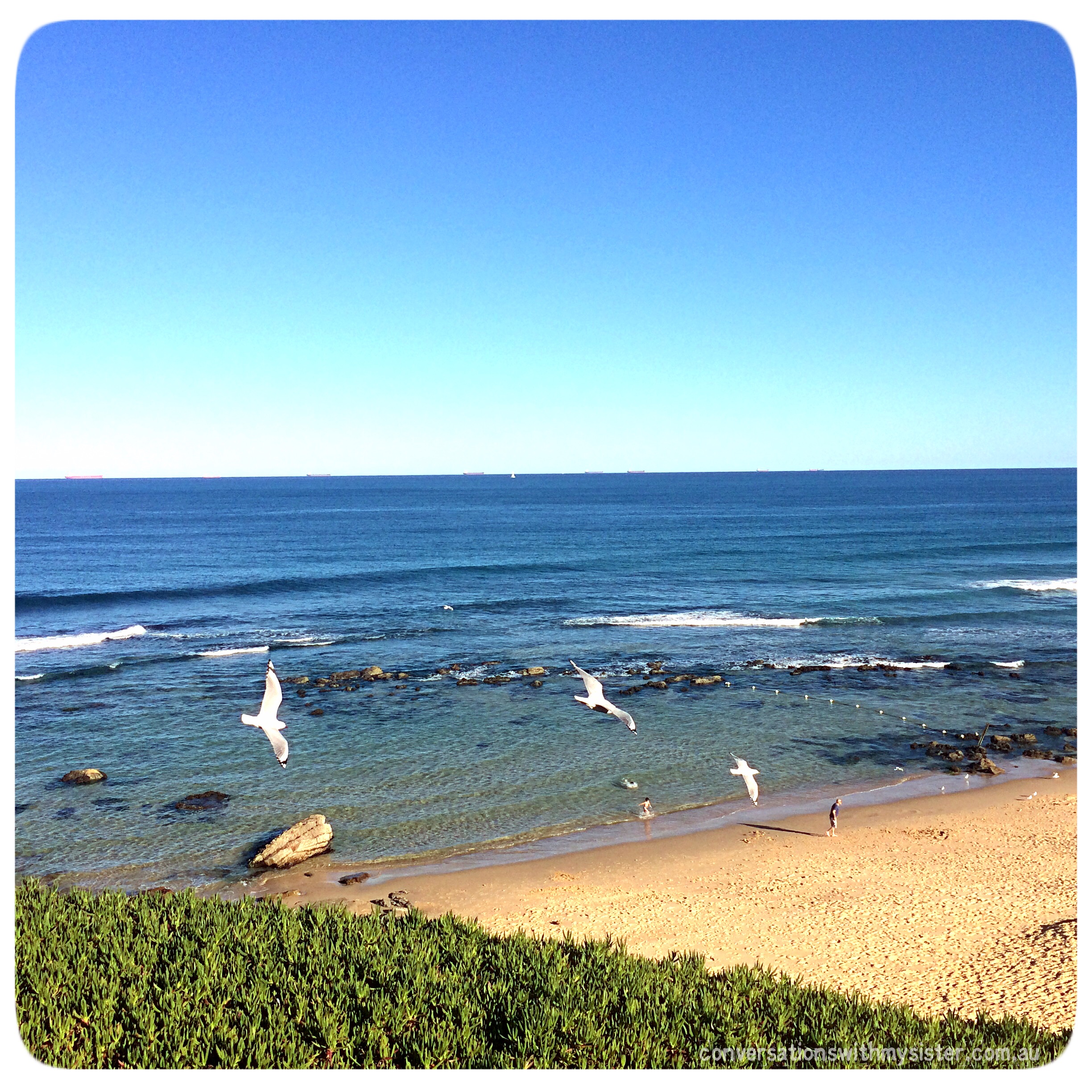
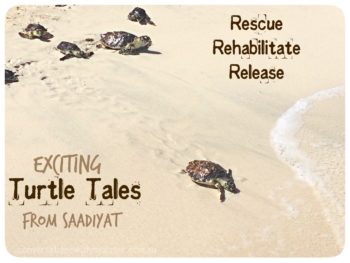



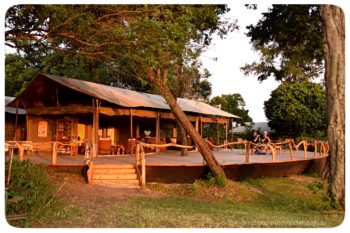
















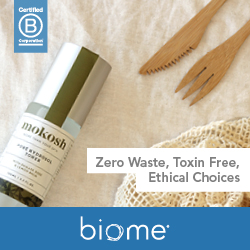




23 Responses to Your Sustainable Lifestyle Checklist – A Universal Perspective